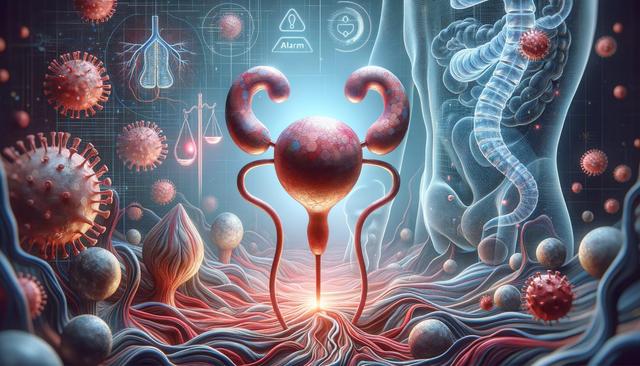Early Warning Signs of Bladder Cancer You Shouldn’t Ignore
Recognizing early signs of bladder cancer, like blood in urine or unusual urination changes, is crucial. Prompt consultation with a healthcare professional for any persistent symptoms ensures accurate diagnosis and timely care for bladder health concerns.

Understanding Bladder Cancer and Its Risk Factors
Bladder cancer begins when cells in the bladder lining grow abnormally and form tumors. While it can affect people of any age, it is more common in older adults. Understanding the underlying risk factors can help you stay proactive about your bladder health. Common risks include smoking, exposure to certain industrial chemicals, chronic bladder infections, and a personal or family history of cancer. Men are statistically more likely to develop bladder cancer than women, and individuals with prolonged exposure to arsenic or those who take specific medications may also face a higher risk. Awareness of these factors can encourage early screening and lifestyle changes that reduce the likelihood of developing the disease.
Recognizing Blood in the Urine
One of the most noticeable early signs of bladder cancer is hematuria, or blood in the urine. This symptom may not always be visible to the naked eye and might only be detected during routine urine tests. When visible, the urine may appear pink, red, or dark brown. It is essential to understand that the presence of blood does not always indicate cancer—it could be due to infections or kidney stones. However, persistent or recurring hematuria should never be ignored. If you notice any of the following, seek medical advice promptly:
- Sudden change in urine color without dietary cause
- Pain during urination along with blood
- Urine that smells unusual or appears cloudy
Early evaluation can lead to timely diagnosis and more effective treatment options, making it critical to treat this symptom seriously.
Changes in Urination Patterns
Aside from visible signs like blood, bladder cancer can also cause noticeable changes in urination habits. These may include increased frequency, urgency, and discomfort during urination. Some individuals may experience a weak urine stream or feel as though their bladder is not completely empty. While such symptoms are common in other urinary tract conditions, their persistence without relief warrants professional evaluation. Watch for these patterns:
- Needing to urinate more frequently during the night
- Experiencing sudden urges to urinate without being able to hold it
- Pain or burning sensations while urinating
Monitoring your urinary habits over time can provide valuable clues to your healthcare provider and help distinguish between a minor infection and a more serious issue like bladder cancer.
Fatigue and Unexplained Weight Loss
In addition to urinary symptoms, bladder cancer may cause more systemic signs such as fatigue and unintentional weight loss. These symptoms often appear in more advanced stages but should not be overlooked if they occur alongside urinary issues. Fatigue may result from the body’s response to cancer or from anemia caused by blood loss. Similarly, unexplained weight loss can indicate that the body is expending more energy to fight a disease or that there is a metabolic change linked to cancer. If you are experiencing:
- Persistent tiredness despite adequate rest
- Loss of appetite or changes in eating habits
- Noticeable weight drop without dietary changes
It’s essential to consult a healthcare professional. While these symptoms can be related to many conditions, they are also red flags that require thorough investigation.
When to Seek Medical Attention
Early detection of bladder cancer greatly increases treatment options and improves the likelihood of a favorable outcome. If you experience any of the symptoms mentioned—especially in combination—it’s crucial to speak with a medical provider. Diagnostic steps may include urine tests, cystoscopy, imaging studies, or a biopsy. Don’t delay a conversation with your doctor if you notice:
- Persistent blood in the urine
- Unexplained changes in urination
- Ongoing fatigue or weight changes
Many of these symptoms can mimic less serious conditions, but only a thorough evaluation can rule out or confirm bladder cancer. Early medical intervention can lead to a quicker diagnosis and more targeted treatment approach, making your health journey significantly more manageable.
Conclusion: Staying Vigilant About Bladder Health
Being aware of the early symptoms of bladder cancer empowers individuals to take timely action. While many signs such as blood in the urine or changes in urination are also common in non-cancerous conditions, their persistence should not be ignored. Regular check-ups and attentiveness to bodily changes can make a meaningful difference in catching the disease early. If you or someone you know is experiencing these symptoms, encourage professional medical evaluation. Taking proactive steps today can lead to better outcomes tomorrow and support long-term bladder health.